Overview:
Behavioural-based job interviews generally form the backbone of most recruitment processes. Many hiring managers see interviews as the ‘make or break’ point for candidates. However, like the recruitment process itself, interviews are not an exact science and are far from perfect. In fact, hiring a candidate based off of a single interview is a risky proposition for any Hiring Manager and fraught with danger.

The main issue with interviews is that on their own, they are not an accurate indicator of a candidate’s suitability for a role. The construct of the behavioural-based interview is generally geared towards favouring candidates that are highly extroverted, or those with significant job-hunting experience such as University graduates.
Graduate candidates often shine because they’ve mastered the art of performing well at numerous job interviews. What these candidates may lack in experience, they make up for in job interview preparedness. They are familiar with the types of questions commonly asked and they come armed with a mental list of prepared examples.
Behavioural-based interviews also favour the extroverted candidate, who enjoys leading conversations and has the confidence to talk about their expert subject matter; themselves.
Put simply, the more job interviews a candidate is exposed to over their career, the better they become at refining responses to questions they know will be asked.
Let’s take a look at the essential playbook for hiring managers.
1. Conduct multiple interviews
Surprisingly, a lot of employers are content to make a hiring decision based on a single, formal job interview. Again, why would a Hiring Manager take such a risk when investing in arguably the company’s most valuable asset, it’s people? A better approach to minimise risk and truly uncover a candidates’ personality, skills and abilities is to conduct 3-4 rounds of interviews, each with a different setting and most importantly, with a different focus. Let me explain. The first interview could be the formal behavioural-based interview to get to know the candidate, what they bring to the table and to filter those that are clearly unsuitable for the position. The second interview may involve an informal catch-up in a casual setting such as a café with a focus on specific role requirements to more accurately indicate a candidate’s future performance. The third interview could involve other colleagues from the employer, as multiple viewpoints greatly assist in avoiding common unconscious interview biases.
Moreover, you need to think outside the norm and ask questions that candidates wouldn’t be prepared for to gain a better sense of their genuine responses. Similarly, in a casual situation, the Hiring Manager can measure other aspects of a candidate’s personality usually not apparent in formal business settings such as emotional intelligence – little things like whether a candidate bothers to pour you a glass of water, or say ‘thank you’ for the coffee you ordered and so on. The trait of a good Hiring Manager is to ask questions that allow all candidates to shine through, not only the extroverts or experienced job seekers. For instance, Hiring Managers need to structure certain questions that steer a candidates’ answer in a general direction so one can accurately gauge the potential of shy individuals.
Put simply, a very quiet and introverted candidate might actually be the best person for the job, but this wouldn’t be apparent if the Hiring Manager can’t structure the interview to take personality traits into account and thus, avoid unconscious biases.
2. Written assignments
A fantastic tool that doesn’t get used often enough is the written assignment, which is a shame because when used correctly, it can be an extremely accurate predictor of a candidate’s future performance. A written assignment is most suitable for mid to senior-level professionals and may consist of any piece of work that would be expected from the candidate in that role. Before asking a candidate to perform such a project, the Hiring Manager must look at the role tasks, responsibilities and expectations and align the assessment directly to these factors.
For example, say a firm is recruiting for a new CEO, the assessment may consist of a formal presentation for the board. The Hiring Manager would judge the candidate based on how they synthesise complex information into a manageable document suitable for the board’s needs, whilst using their personable skills to articulate concepts in an easy to grasp format – all factors which are directly applicable to the role and thus, highly measurable and objective.
3. Psychometric and personality profiling
Sometimes, a candidate might seem great on paper, that is their education, work experience and skills all match your criteria to a tee, however, there is one large factor that’s missing from this equation – that is, how they fit into the culture of your organisation.
There are many psychometric testing tools available, our team personally like to use Spectrum Assessments to determine what a candidate values, or more specifically, what a candidate values that drives their performance. It’s no good hiring a candidate that’s the best at what they do on paper if they don’t fit the organisational culture.
Whenever an organisation makes a new hire, they should always see an improvement in the organisational culture, it should continue to develop and be embraced. It’s no good hiring the best Engineer based on experience if your company has a tall reporting hierarchy that’s not conducive to that candidate’s innovative drive to work in an unstructured fashion – it simply won’t work. Another great advantage of this tool is that it can be tailored for a diverse range of roles such as leadership, sales, team-based and so forth.
4. Skills-based assessment
Similarly, another great time-saving tool is the skills-based assessment which can quickly determine whether a candidate meets the minimum technical know-how required to perform the role. Please note, this tool is only applicable to roles with considerable numerical requirements such as Accounting, Finance and Engineering. The great advantage of this tool lies in its measurability. If you’re hiring for an administrative position in accounts, with a strong focus on spreadsheets and budget tracking, you can get a very specific indication on a candidate’s skill level with an Excel assessment for instance.
5. Trial shift
For retail positions in customer service (think cafés, clothes stores or bars) one of the best methods to predict job performance and capabilities is a trial shift. This not only gives the candidate a hands-on view of what to expect, it enables the potential employer to interact directly with the candidate in a non-binding manner.
6. Reference checking
Round out your candidate assessment with reference checks to uncover any outstanding gaps. Reference checks are mistakenly referred to as a standardised requirement of the recruitment process, but it’s so much more than that. Now is your chance to question referees on any areas of concern pertaining to the candidates’ abilities.
Whether you decide to use a small or large list of references, it is always helpful to use some kind of external validation points to round out your view of the candidate in question. Do make it a rule of thumb to conduct at least two reference checks for each candidate.
The list of referees given by a candidate can also speak volumes about the candidate’s employment history, even before you pick up the phone to dial.
- Do their referees all come from a single workplace or from a long-distant past workplace?
- Are the referees all colleagues or past employees?
- How many of the referees were their direct manager?
Whatever the list provided, do make sure your candidate provides the contact of at least one direct manager as a referee; because unlike a friend or colleague, a direct manager will be able to comment on their job performance.
Needless to say, it is also not a bulletproof process… notwithstanding when a referee seems too suspiciously eager to please, though it is difficult to investigate the referee’s credibility due to privacy laws!
7. Social Media Checks
Some companies are placing less importance on traditional reference checks by incorporating social media checks (or ‘backdoor’ checks as some like to say) before proffering an employment contract. If you do decide to go down the route of social media checks, you will need to be mindful that using social media for reference checking may open your company to legal consequences under the Privacy and Fair Work Act.
In fact, as the employer, you may be liable under the Anti-discrimination law if you’re unable to prove the information you uncovered from their Facebook profile or other social media accounts didn’t affect their job application. Thus, for best practice, you should ask the candidate for permission to view their social media accounts and if necessary, you can always ask for more referees if you feel the ones provided failed to satisfy your queries.
8. Digital Footprint – The Google Test
The internet is like a digital archaeologist’s dream. Your digital footprint is forever saved on the internet. You’ll even be surprised just how much information can be found from a simple name search on the search engine giant – Google.
From news articles covering scandals to nasty legal proceedings, you’ll be amazing what Hiring Managers miss out when recruiting that ‘perfect’ employee, only to find out they’ve hired someone with impending embezzlement charges. Best of all it only takes a minute of your time.
In Conclusion…
The perfect candidate doesn’t exist.
The role of the Hiring Managers is to identify the skills and attributes most critical to the success of the role in question, and balance this with some in-built flexibility. More often than not, the best-suited candidate might not exactly match their initial expectations or description.
Remember that a candidate’s ability to fit and further develop your company culture is just as important as their functional experience and expertise. As a well-seasoned recruiter will tell you – our craft is finding the best candidates based on a broad spectrum of criteria, rather than solely relying on a ‘gut feel’.
Meet our experienced and dedicated team of consultants
Our Consultants
Want to know more? Get in touch.
Please fill out the form below to make an appointment or request more information.
h
Let our wealth of knowledge and experience guide you.
Related Insights










